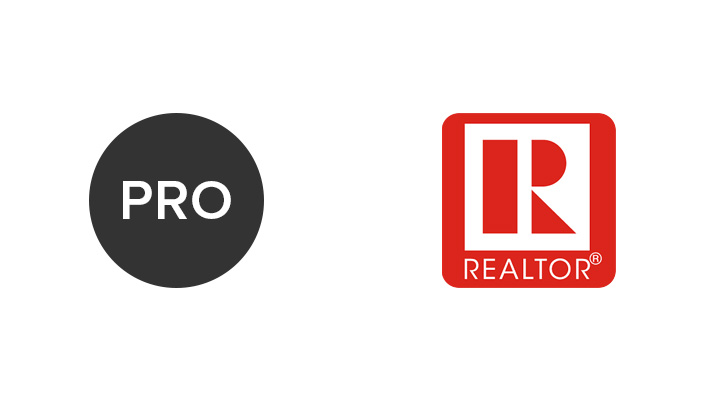It’s a common assumption that more outgoing individuals make stronger salespeople. But what does psychological science have to say about it?
You don’t have to be a “people person” to succeed in sales. If your natural tendency is to be more quiet and reflective rather than talkative and outgoing, you can be just as successful in real estate—maybe even better, says Andy Johnson, a licensed counselor and author of Introvert Revolution. Johnson’s work has centered on debunking common myths about introverts in the workplace.
People with extroverted personalities have long been assumed to be the most wired for sales jobs. Networking, prospecting, self-promotional marketing, and face-to-face meetings tend to come easier for social butterflies than wallflowers. But don’t underestimate the introvert; their quietness and introspection can offer distinct advantages in a real estate career.
Not sure which side of the spectrum you fall on? Take the Myers-Briggs personality testfor a $50 fee, or opt for a free online assessment at PsychologyToday.com.
There’s almost zero correlation between extroversion and sales performance, according to research published in the Applied Psychology Journal. Those who are most successful at sales tend to be people who are a hybrid of introverted and extroverted personalities, or “ambiverts,” according to the Psychological Science Journal. Ambiverts engage in flexible patterns of talking and listening and are able to express assertiveness while also being reflective, the studies found.
Luckily, most people fall in between being introverted and extroverted, says researcher Adam Grant, a best-selling author on workplace success and a professor of psychology at the University of Pennsylvania. Grant says it’s beneficial for workers to learn where they fall on the introversion-extroversion spectrum so they’re aware of their tendencies. “Many people may not be aware that their personality traits are flexible,” he says. “I think of personality more like an anchor, with a freedom to pursue new possibilities without drifting too far.”
Breaking Down Each Personality
| PERSONALITY TYPE | STRENGTHS | WEAKNESSES |
|---|---|---|
| Introverts | Talks less and listens more, an important communication style when serving clients.Reflective in nature, which enables anticipation of potential questions and objections. | Perceived as shy, secretive, and antisocial.Makes weak sales pitches.Less confident when prospecting, networking, and negotiating. |
| Extroverts | Engages easily in small talk.Energized by collaboration.Strong prospecting and networking skills.Appears optimistic, confident, and friendly in face-to-face meetings. | Perceived as egotistical or rude.Assertiveness can seem pushy or overconfident.Talks more than listens.Overexcitement can be seen as trying to influence decisions. |
Making Your Personality Work in Real Estate
Whether introverted, extroverted, or ambiverted, you can carve your path to success in the industry. Identify your personality traits, and learn which skill sets come more naturally to you and which ones you may need to adopt in certain situations. Here’s how to improve on your shortcomings.
Introverts: What kinds of situations do you avoid because you feel you need to be extroverted to be successful? Is this jeopardizing your business in any way? Introverts can rehearse sales pitches or common customer objections to gain confidence and prepare for real-life encounters. If your introverted tendencies are standing in the way of growing your business, consider teaming up with an extroverted agent. Your teammate can attend networking mixers while you develop online marketing campaigns, delegating work you each excel at, Johnson says.
Extroverts: Do you dominate conversations? Are you building deeper relationships with clients? Are you truly listening or just thinking of how you plan to reply? Extroverts may need to pay more attention to how much they’re talking in a conversation and remind themselves to ask questions and listen more.
- Play to your strengths. For example, networking is crucial to build your business, but you can do other activities than attending mixers if that doesn’t fit your personality, Johnson says. Introverts tend to be better at written communications, so they can concentrate on blogging and social media when it comes to client outreach. “Know the different set of skills you bring, and don’t hide them,” Johnson says. Extroverts, on the other hand, may be more successful at hosting buyer and seller seminars or sponsoring community events.
- Don’t fake it. Introverts, in particular, may feel the need to conform to extroverted expectations in the workplace, Johnson says. But that can backfire and won’t work over the long term. “We can adapt behavior in the moment, but pretending to be someone else can be very exhausting. And why would someone want to hire a real estate professional who is not their authentic self?” Johnson says. “It’s all about embracing and reframing your strengths as either an introvert or extrovert.”
- Opposites make good teams. Extroverts may bring lots of ideas to the table and talk out loud as they brainstorm. Introverts may bring inquisitive, reflective ideas to help spot solutions. Together, they can make powerful teams. Brokers should be careful not to overlook the skills of an introvert in hiring decisions. Reassess hiring and training processes to maximize the investment in potential sales leaders, according to research from Baylor University’s Keller Center for Research. “Your personality matters, but your ability to adapt matters much more,” Grant says. “You need to tell yourself, ‘I’m not going to be a slave to my traits just because I was built with these tendencies.’”
Melissa Dittmann Tracey
Contributing Editor
Melissa Dittmann Tracey is a contributing editor for REALTOR® Magazine. She can be reached at mtracey@realtors.org.












